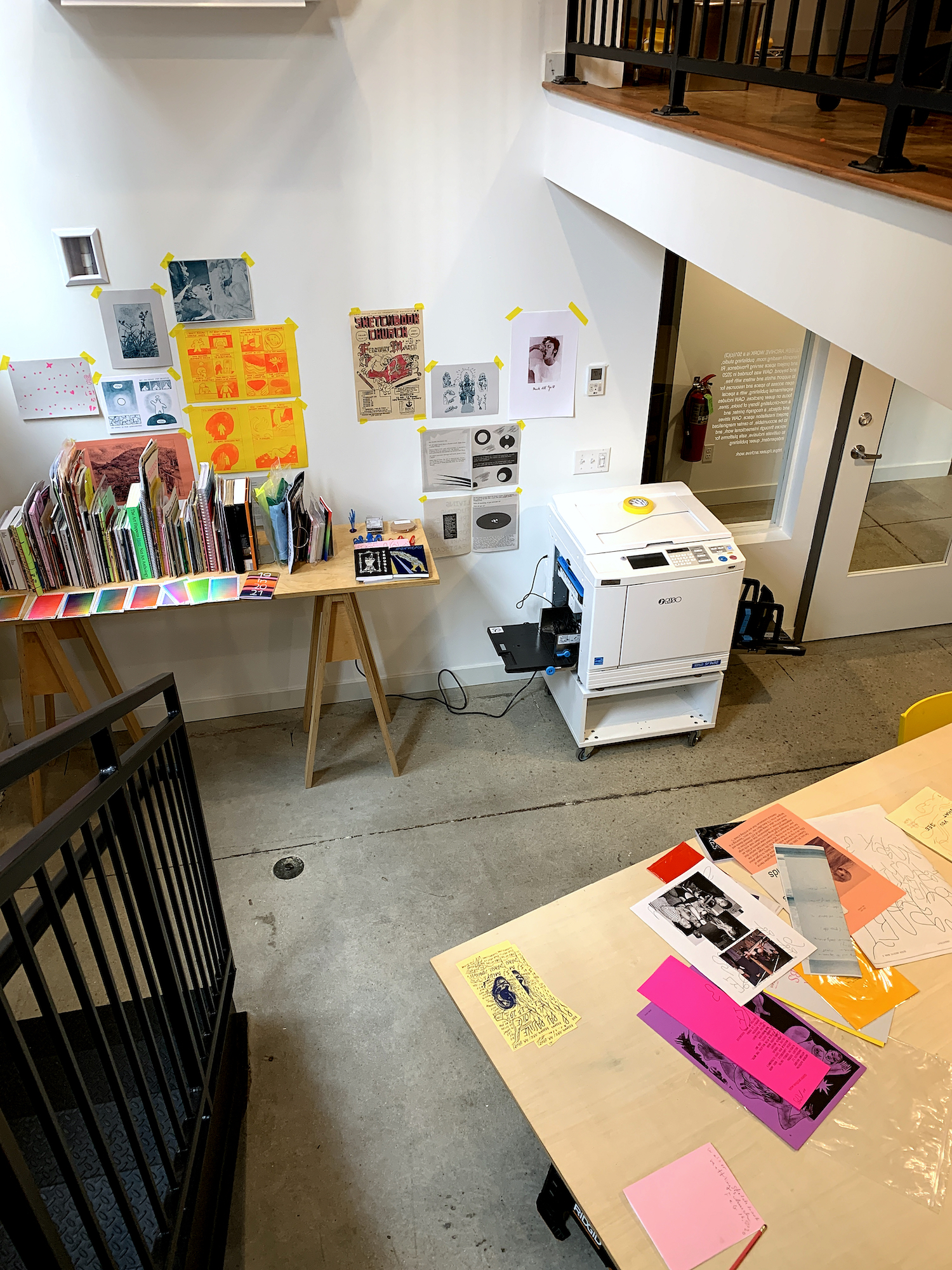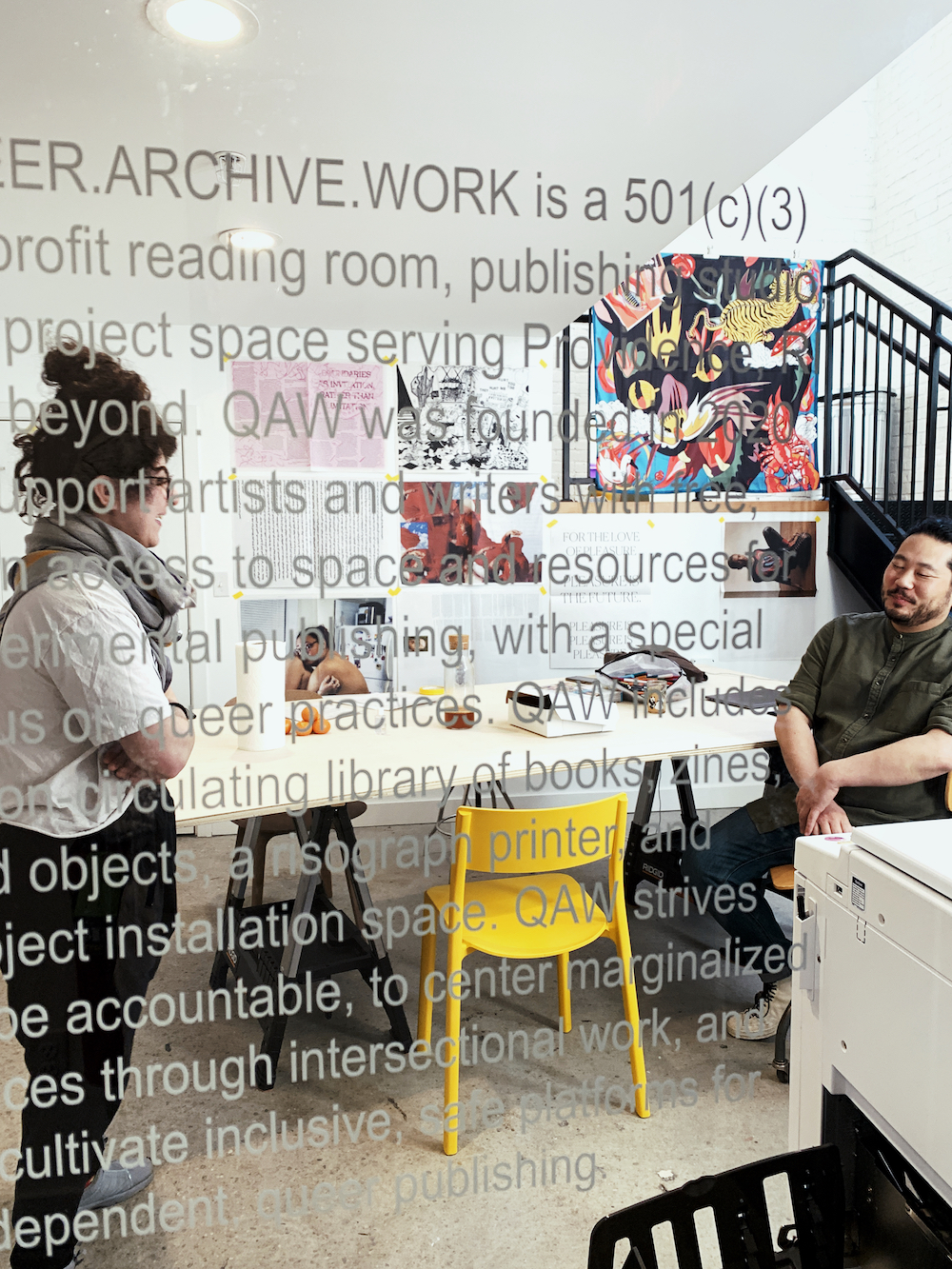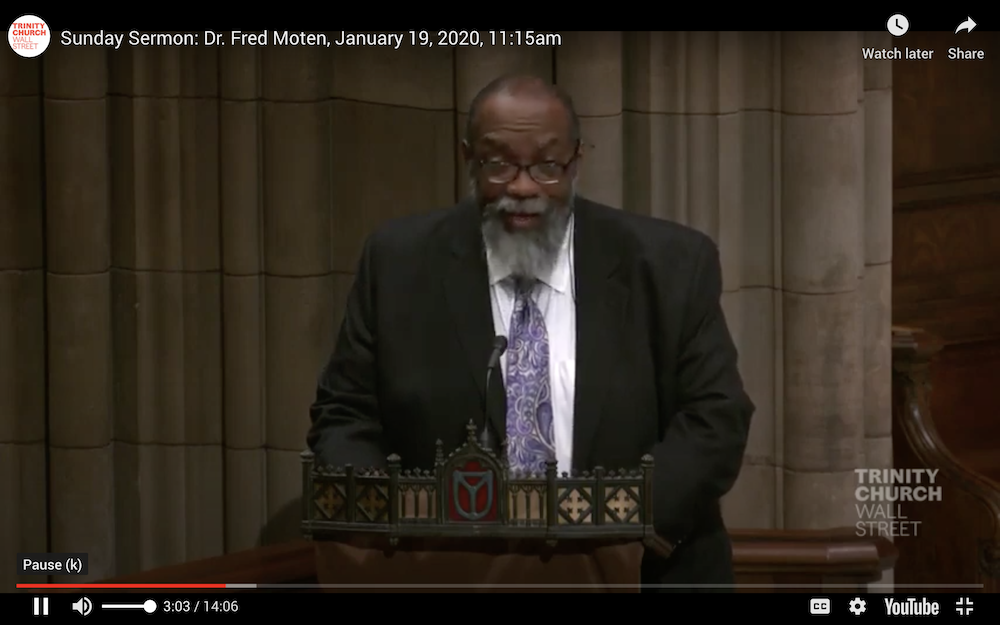SCREEN ZINE
A SPONTANEOUS 1-HOUR ZINE-MAKING WORKSHOP ON ZOOM FOR THE 2020 BROOKLYN ART BOOK FAIR SATURDAY JUNE 27 2:00PM
A few notes———
- Thank you to Paul John, Hannah Coleman, and Samantha Schroeder of Endless Editions and the entire team at the Brooklyn Art Book Fair for their tireless work, and for making space for Queer.Archive.Work at the fair. And a special thanks to Paige Landesberg, who curated all of the programming.
- We are recording!
- This is a participatory workshop, but don’t stress—we’ll make it easy and soothing : )
- You’ll have a better time if you’re on a desktop or laptop computer so you can use the “gallery view” in zoom. Also, we’ll be sharing screens later on. If you’re on a mobile device, please stay with us, but you might be a bit more limited functionally.
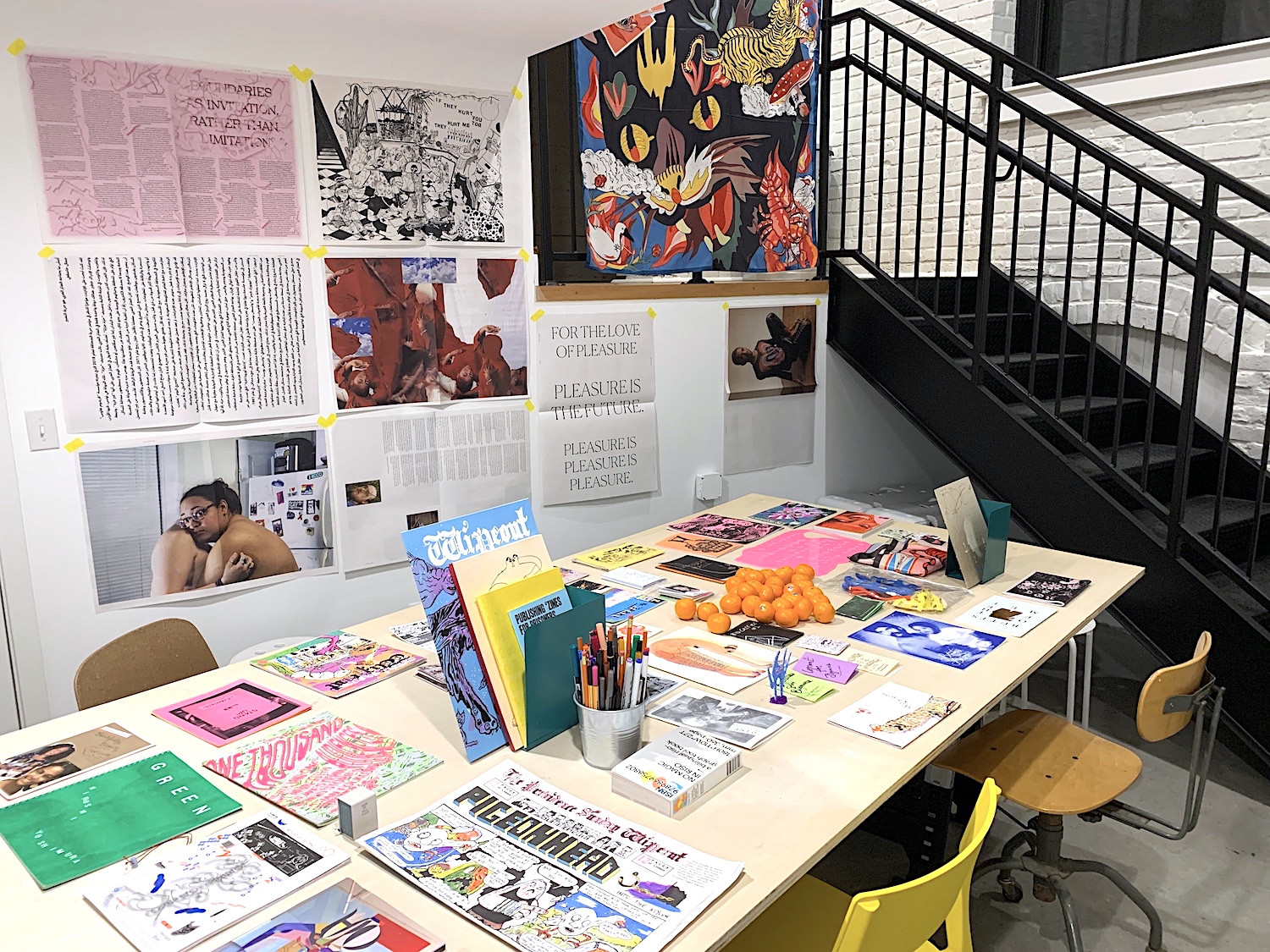
So where am I?
I’m tuning in from Queer.Archive.Work, a non-profit reading room and risograph publishing studio in Providence, RI. We’re brand new, and just opened our doors right before the pandemic hit.
Take a second to say hi in the chat —your name, your pronouns, and your location. Who’s here? Where are we? Write anything you like.
A few things about this space. QAW is a community space. I’m interested in how a place like this can be porous, like a sponge, enabling people, voices, ideas and materials to easily flow in and out. This means removing as many barriers to access as possible, which is hard to do, and we’re still learning and figuring that out. We’re about to launch a Riso Residency program, so we’ll get a chance to try this out over the next year, as people come to use the space in unexpected ways, in ways that support their own work.
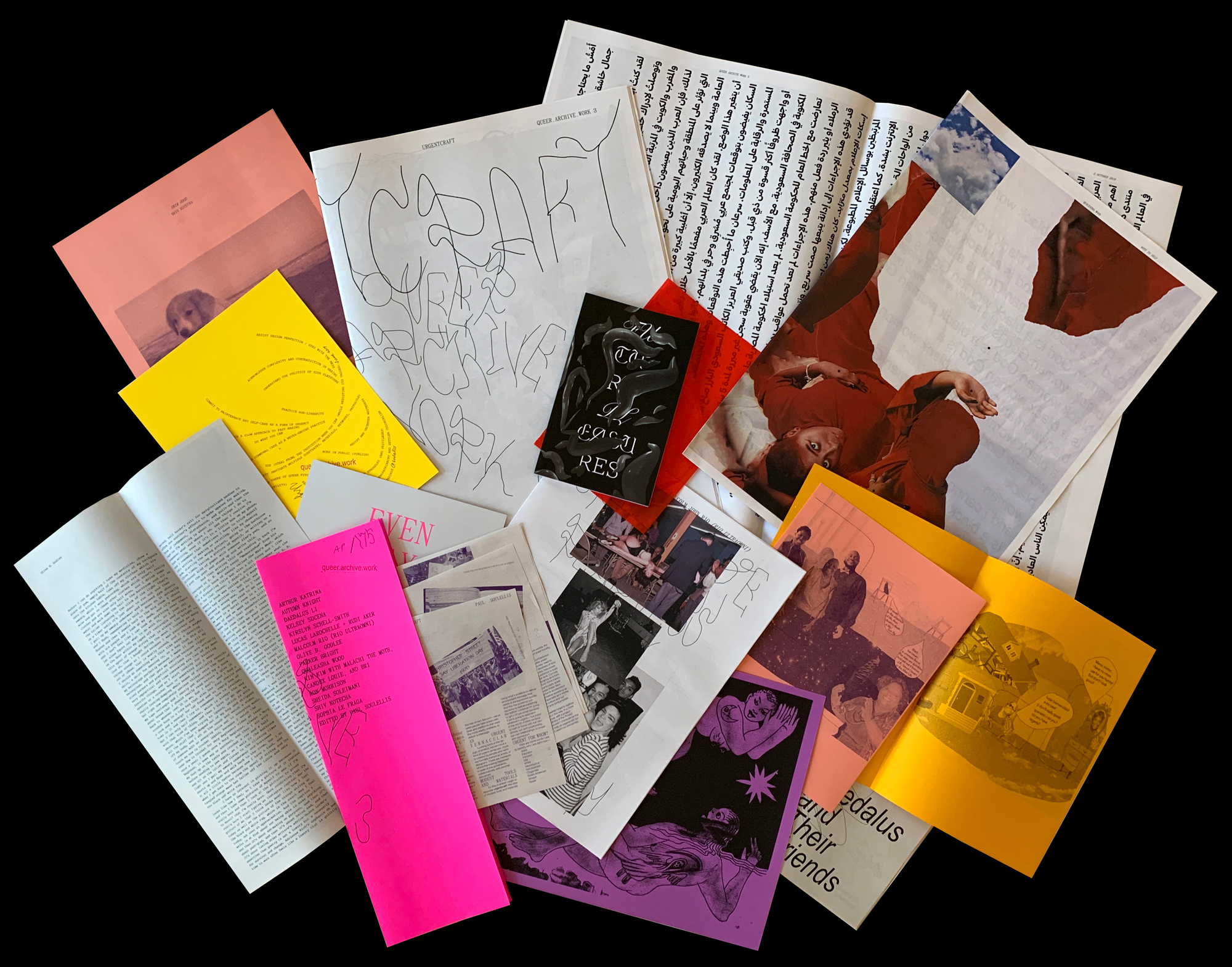
Before QAW was a physical space, it was a publication. I tried to design these publications so that they came apart without any presumed order or hierarchy. They’re designed to make a mess—to gather people who use queer practices in their writing and artwork, and let them be in conversation together in the space of a publication, in unexpected ways.
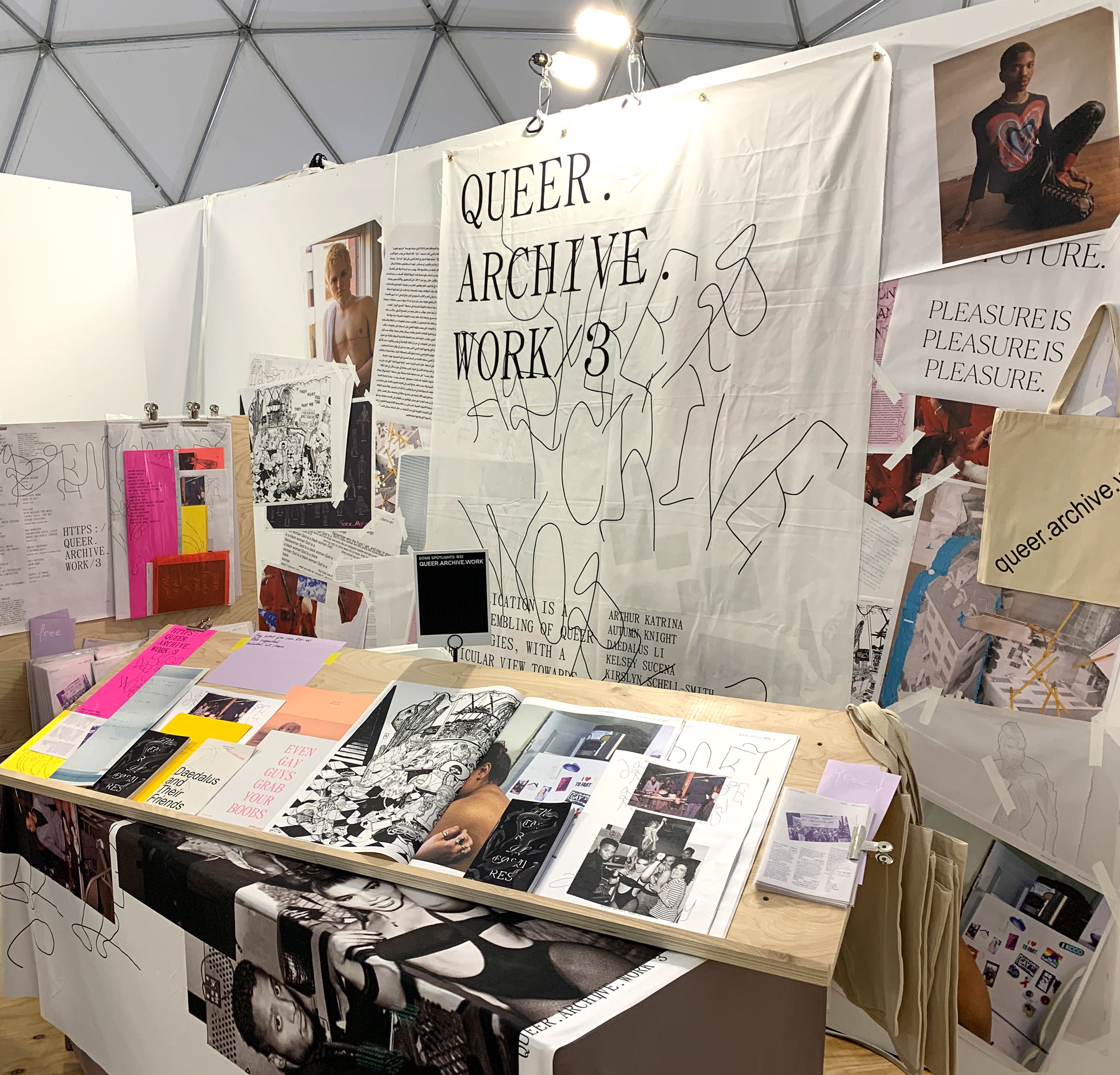
What do I mean by queer here: I mean the use of tactics like refusal, resistance, and illegibility, and other ways that artists and designers and activists and poets try to loosen power. Both through the work that they produce but also how they work in their practice. I’ve also called it urgentcraft. From these messy projects I also learned that a publishing practice can be a way to model care, in all of its relationships and collaborations and even in how its forms are disseminated and circulate. Un-learning what we know about publishing, and questioning the form of the publication itself, and what it can be.
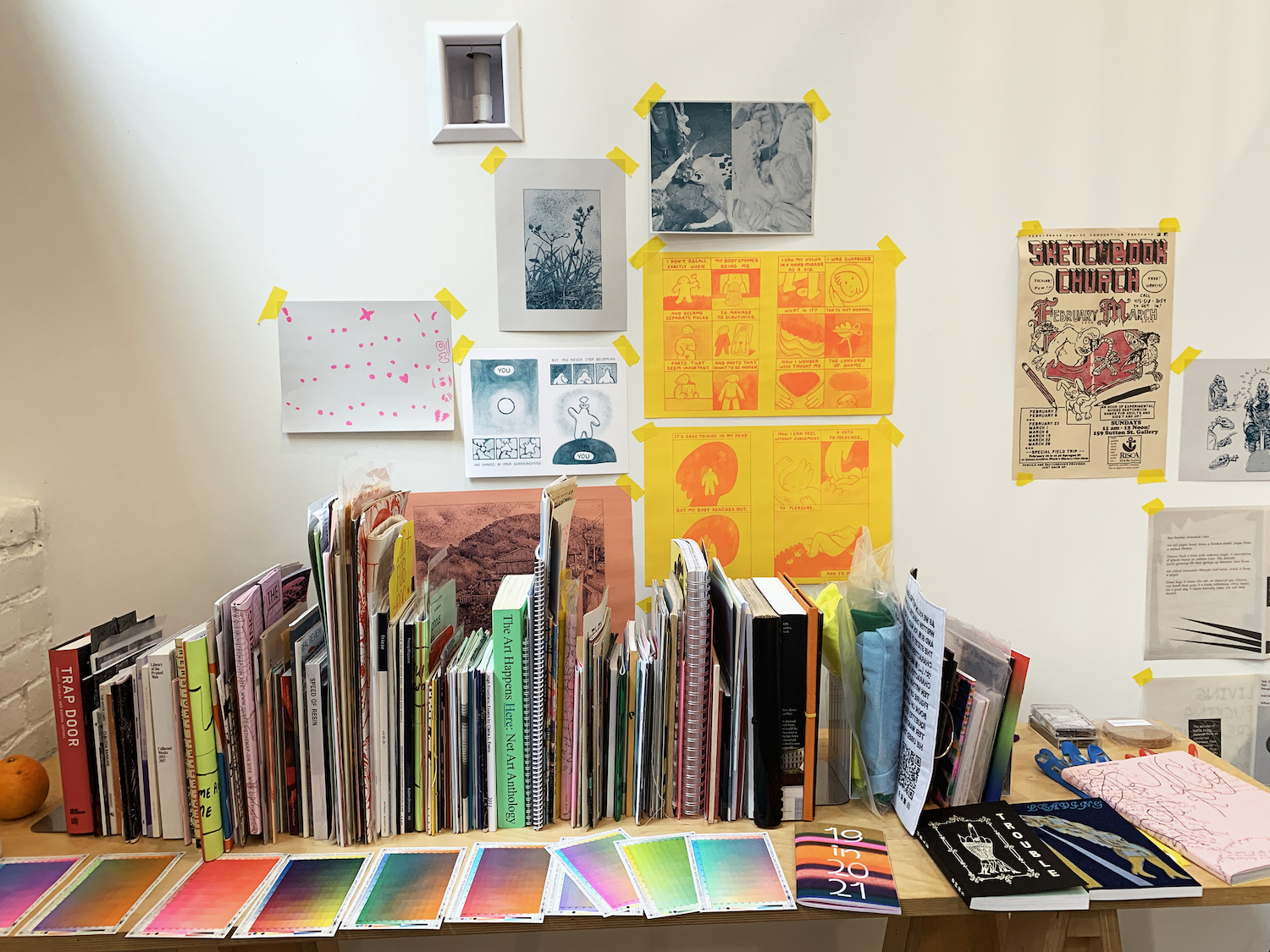
So, back to the space. We’ve got a beautiful, chaotic little library here. It’s small, but growing fast. It’s a collection focused specifically on experimental publishing. The library acts like a kind of lens to see how independent artists and writers and poets work outside of traditional art world spaces, especially those who are engaged in queer practices.
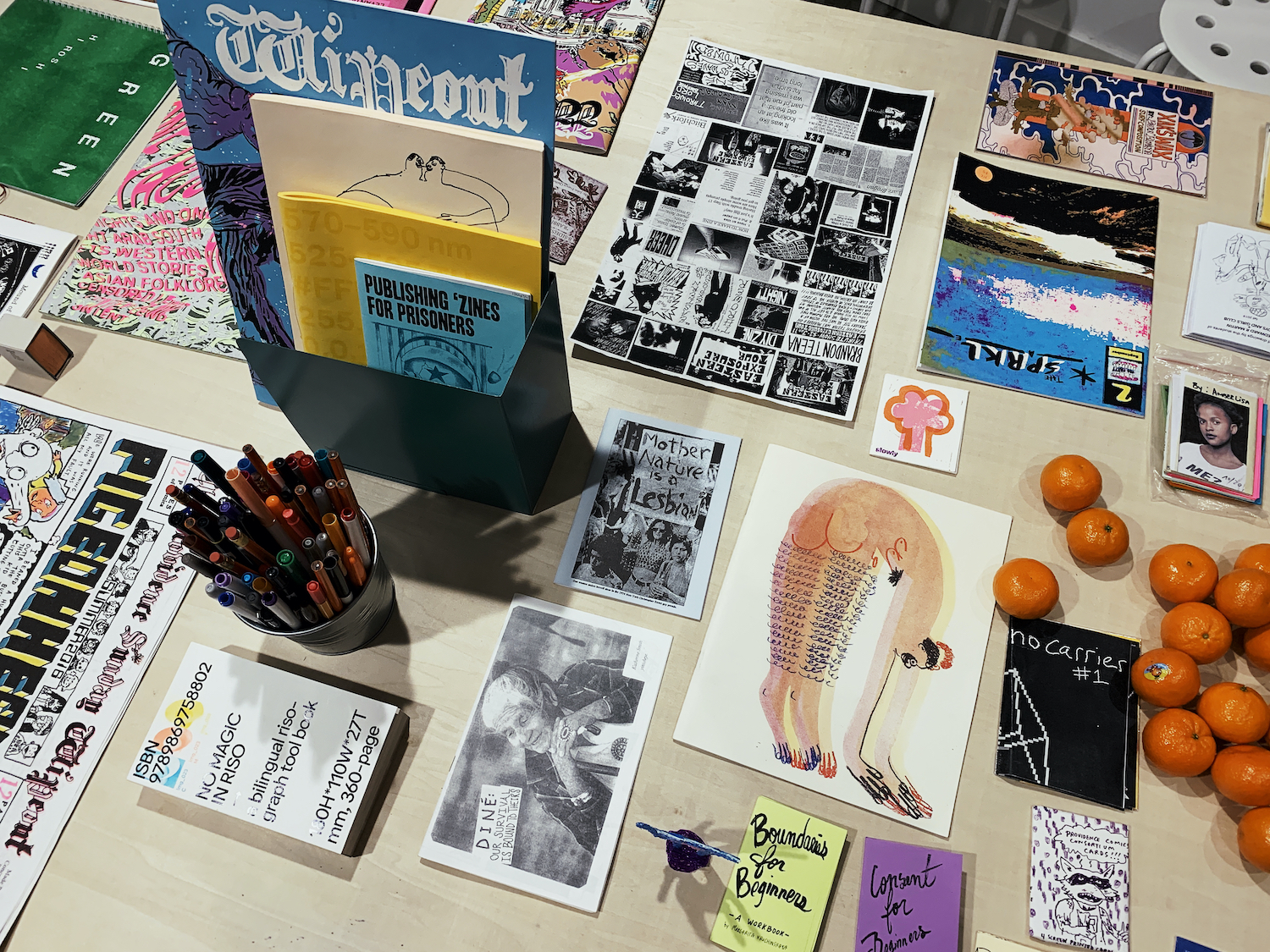
The people included here may or may not identify as queer, a good number of them do, but many of these artists are underserved or minoritized in other ways, and each artist is doing something in their work to challenge normative ideas about how to make, how to share, and how to use art and design to resist. So there’s an interesting discussion to be had here around the word queer, both as a noun, a way to describe someone or something, as well as queering as a verb—what it means to queer something, to reverse it, twist it, to turn it into a mess, to challenge inherent power structures.
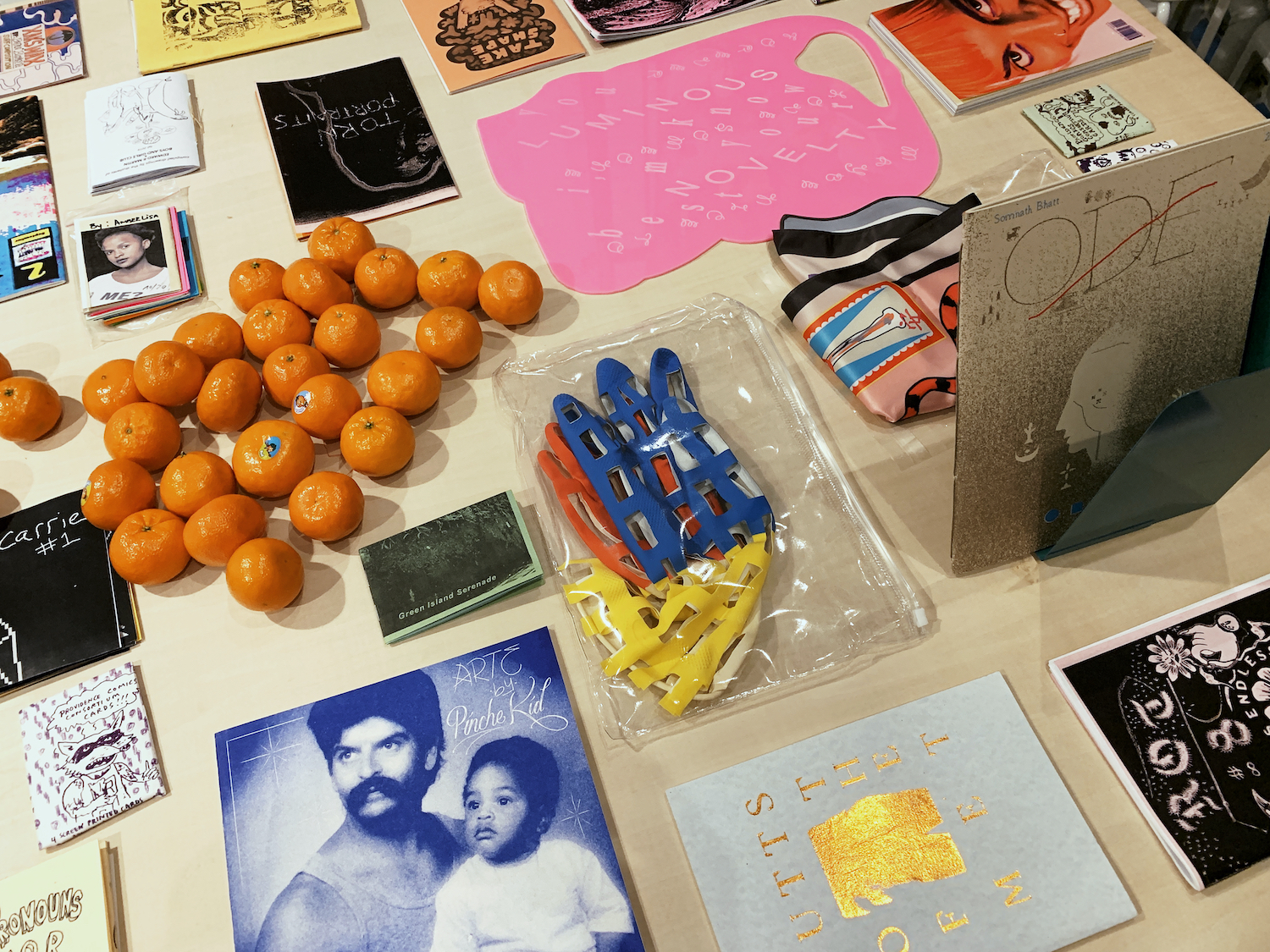
Making a mess and staying with the mess, as a way to stay with the trouble, is a large part of why I started this space. It’s trying to be an alternative to other kinds of spaces that typically prioritize order and exclusivity and exceptionalism, like big art and design schools, museums, galleries, and mainstream publishers.
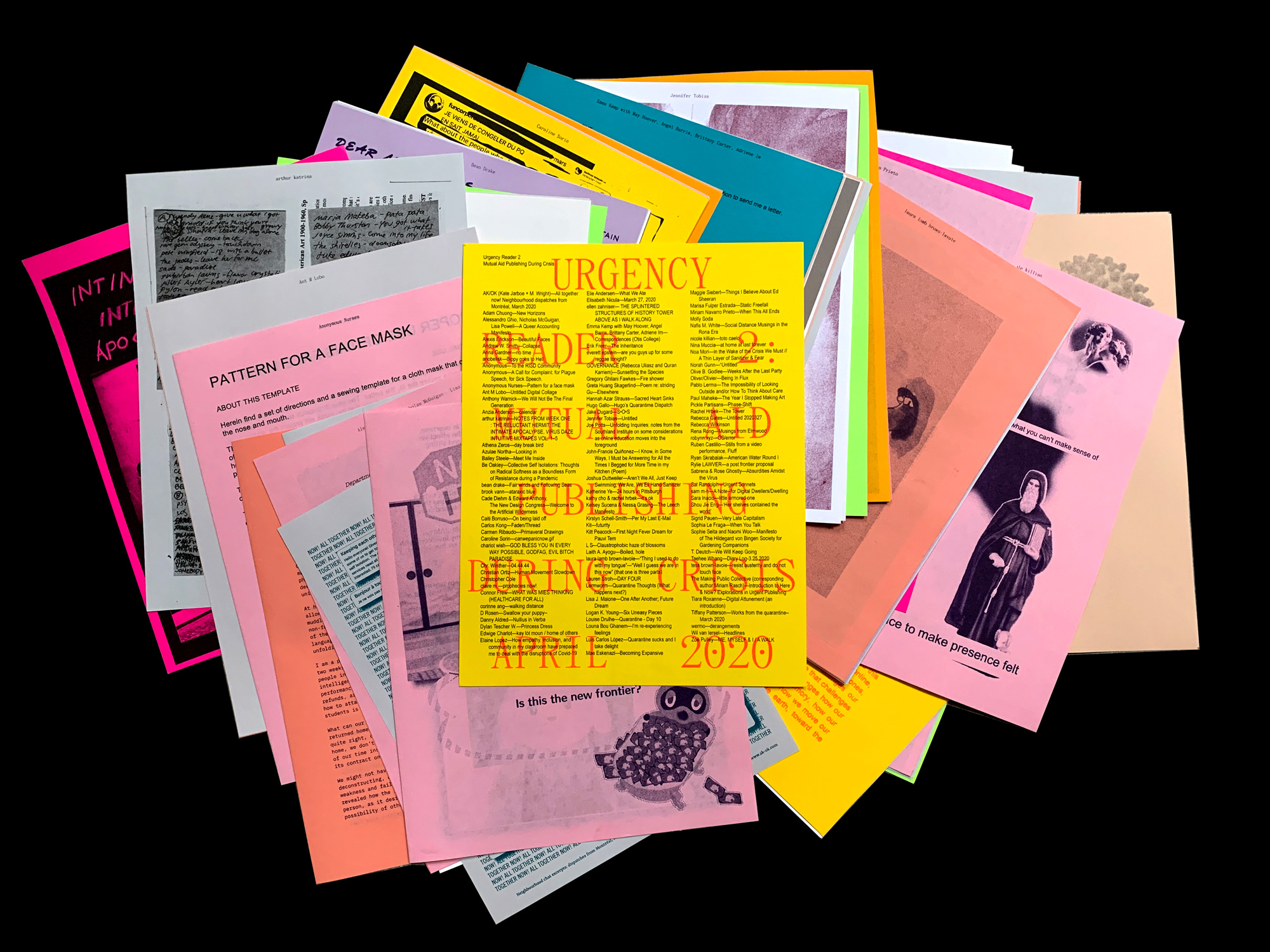
Here’s one particular publication I’d like to point out: Urgency Reader 2. I assembled it a few months ago, in April, in the middle of quarantine, as a way to bring together people who were writing and making art while sheltering at home. 110 people contributed work, and I was able to pay everyone using a RISCA grant that I had just received, although several artists contributed their compensation back to the larger pool, which means the project took on a beautiful mutual aid aspect as well.
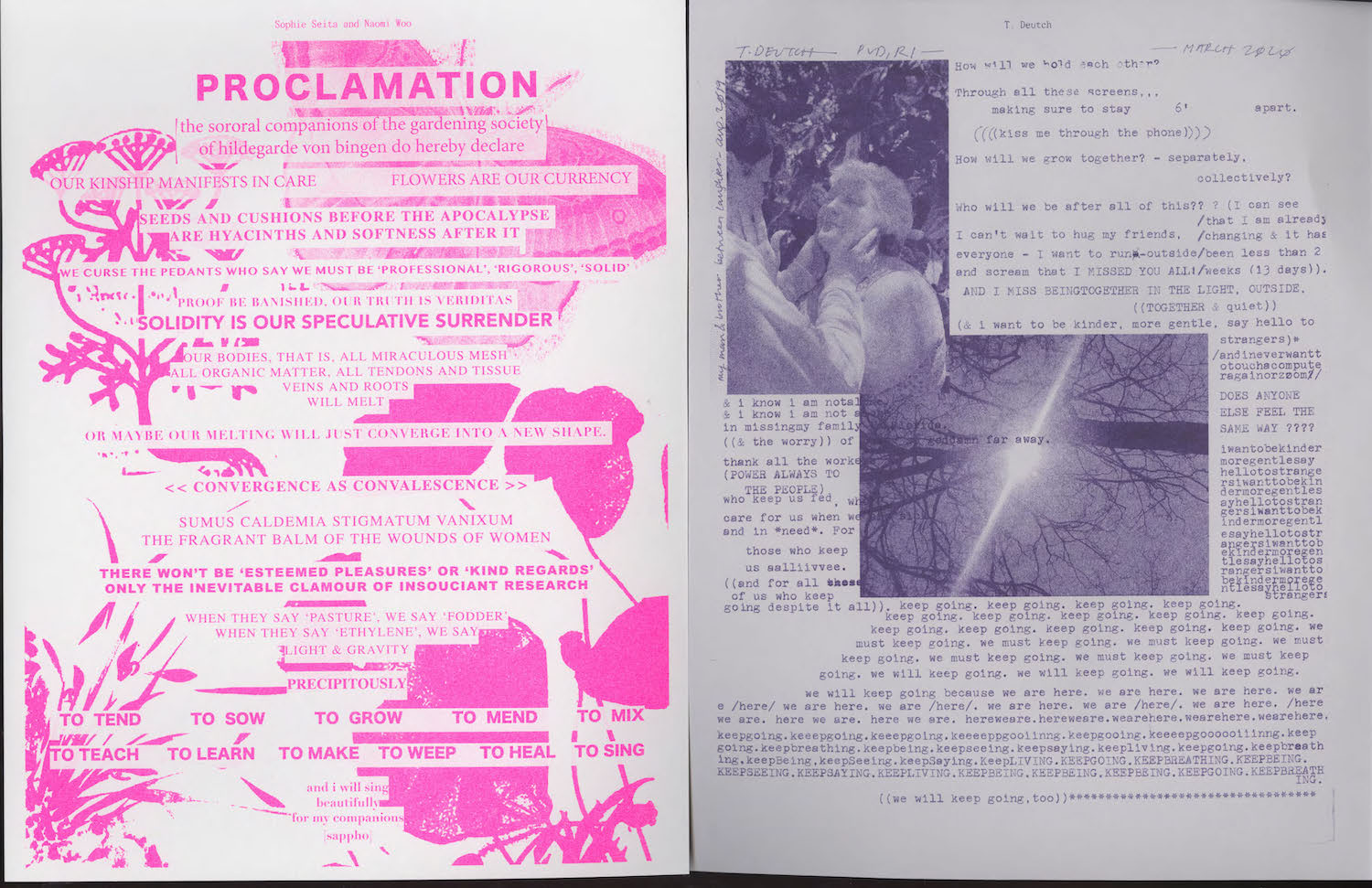
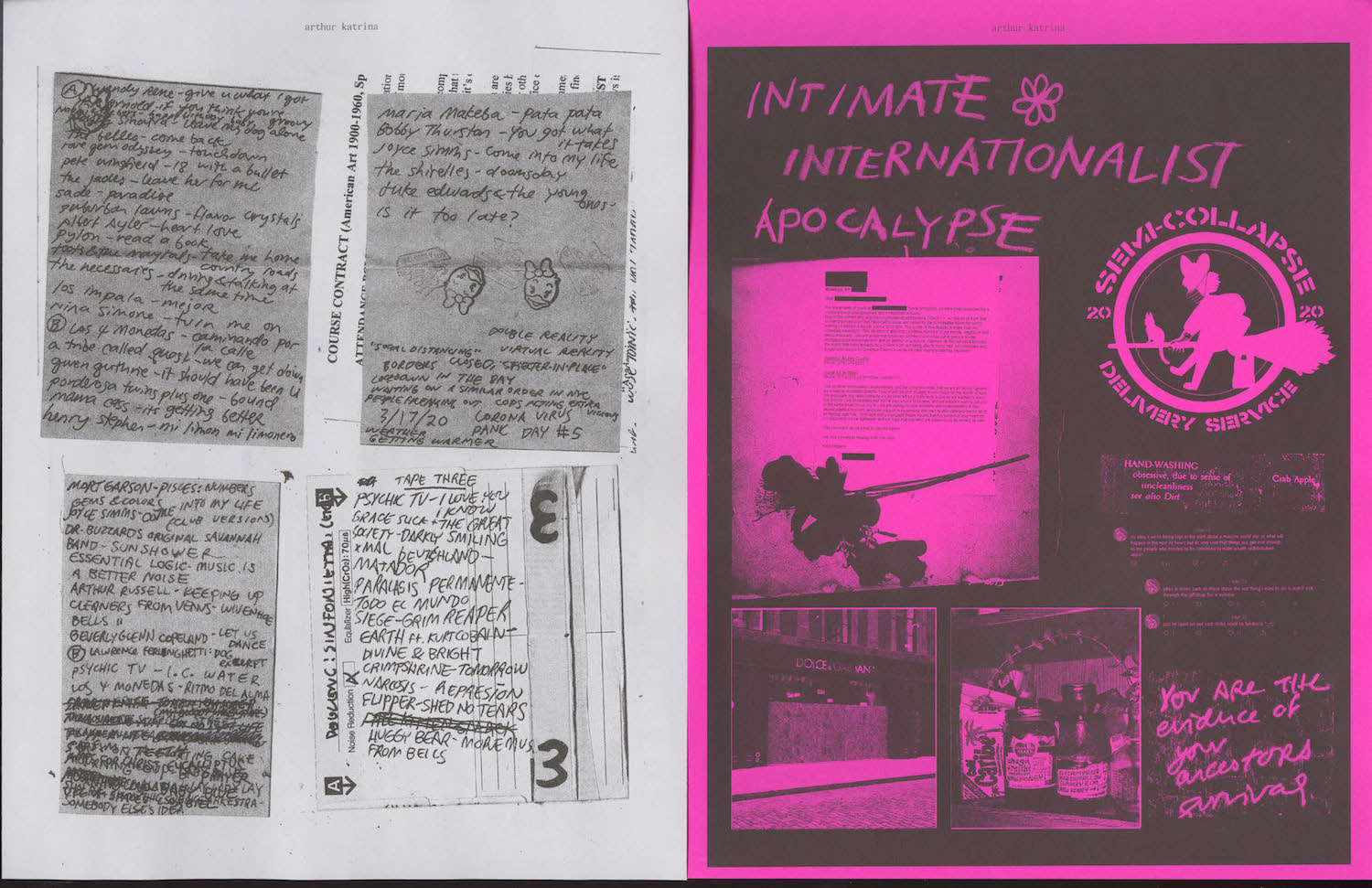
It’s a remarkable collection of urgent artifacts. It marks the moment. It’s a kind of archive itself, a time capsule of how a particular group of people was seeing and feeling and expressing during crisis. I like to use the term “commoning-in-the-crisis” here, named by the activist group Decolonize This Place on March 13, just as the pandemic hit the US.
Feel free to download the entire reader to take a closer look.
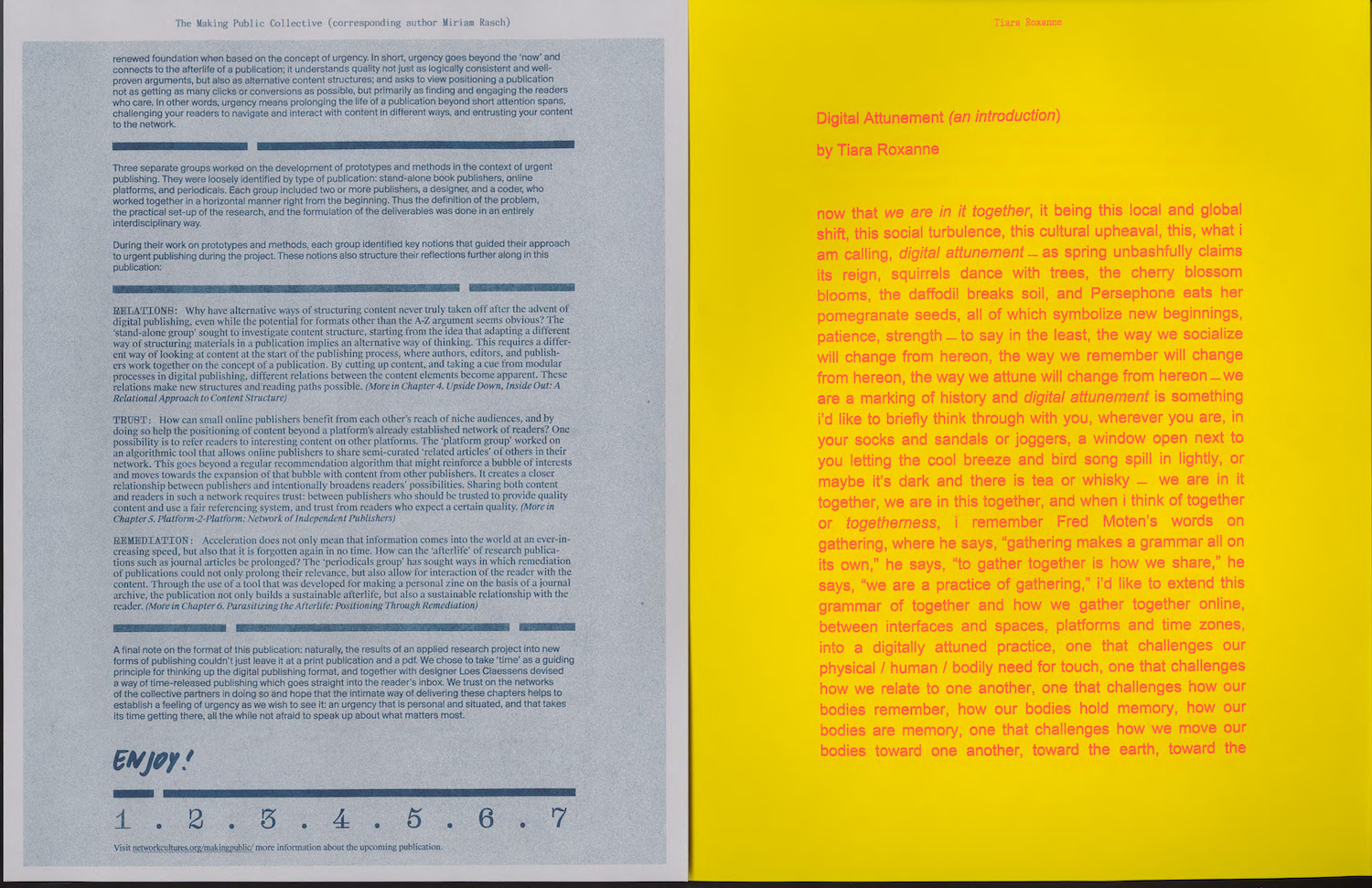
A specific idea I’d like to point us to is here inside Urgency Reader 2, in a piece of writing titled “Digital Attunement (an introduction),” submitted by Tiara Roxanne, an Indigenous cyberfeminist and scholar based in NYC and Berlin. In this text, Tiara introduces the concept of digital attunement as a way to think about how to connect and gather in our current condition. Thinking specifically about the digital here, and environments like the one that we’re in right now.
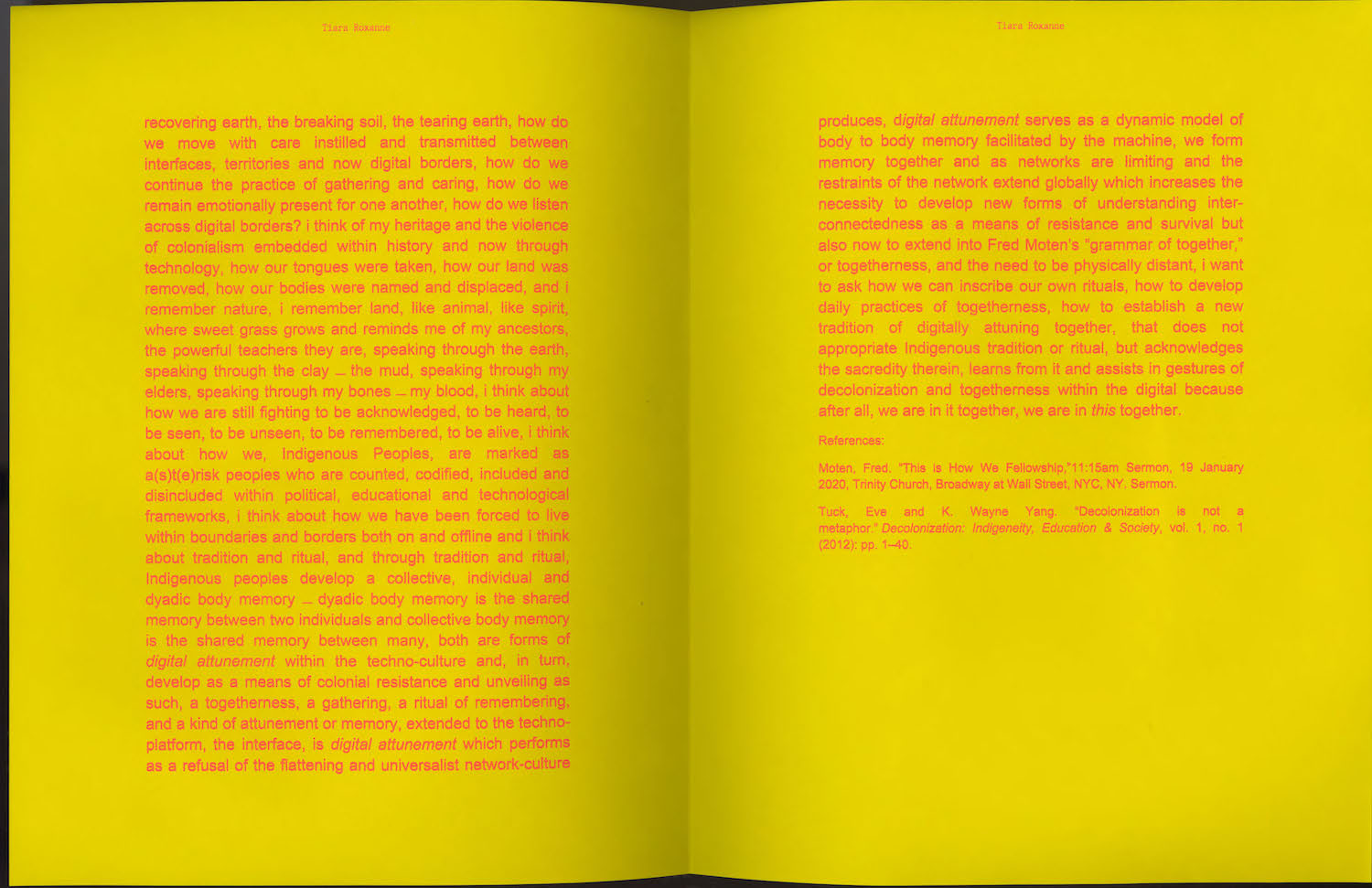
She writes:
“. . . digital attunement serves as a dynamic model of body to body memory facilitated by the machine, we form memory together . . . i want to ask how we can inscribe our own rituals, how to develop daily practices of togetherness, how to establish a new tradition of digitally attuning together, that does not appropriate Indigenous tradition or ritual, but acknowledges the sacredity therein, learns from it and assist in gestures of decolonization and togetherness within the digital because after all, we are in it together, we are in this together.”
We all know about the limitations and frustrations and exhaustion that can be felt here in our detached grids, but what does this space afford?
What are our new rituals?
Is there room for surprise here?
Unexpected connections,
ways of sensing,
ways of tuning in,
in it together,
tuning in together?
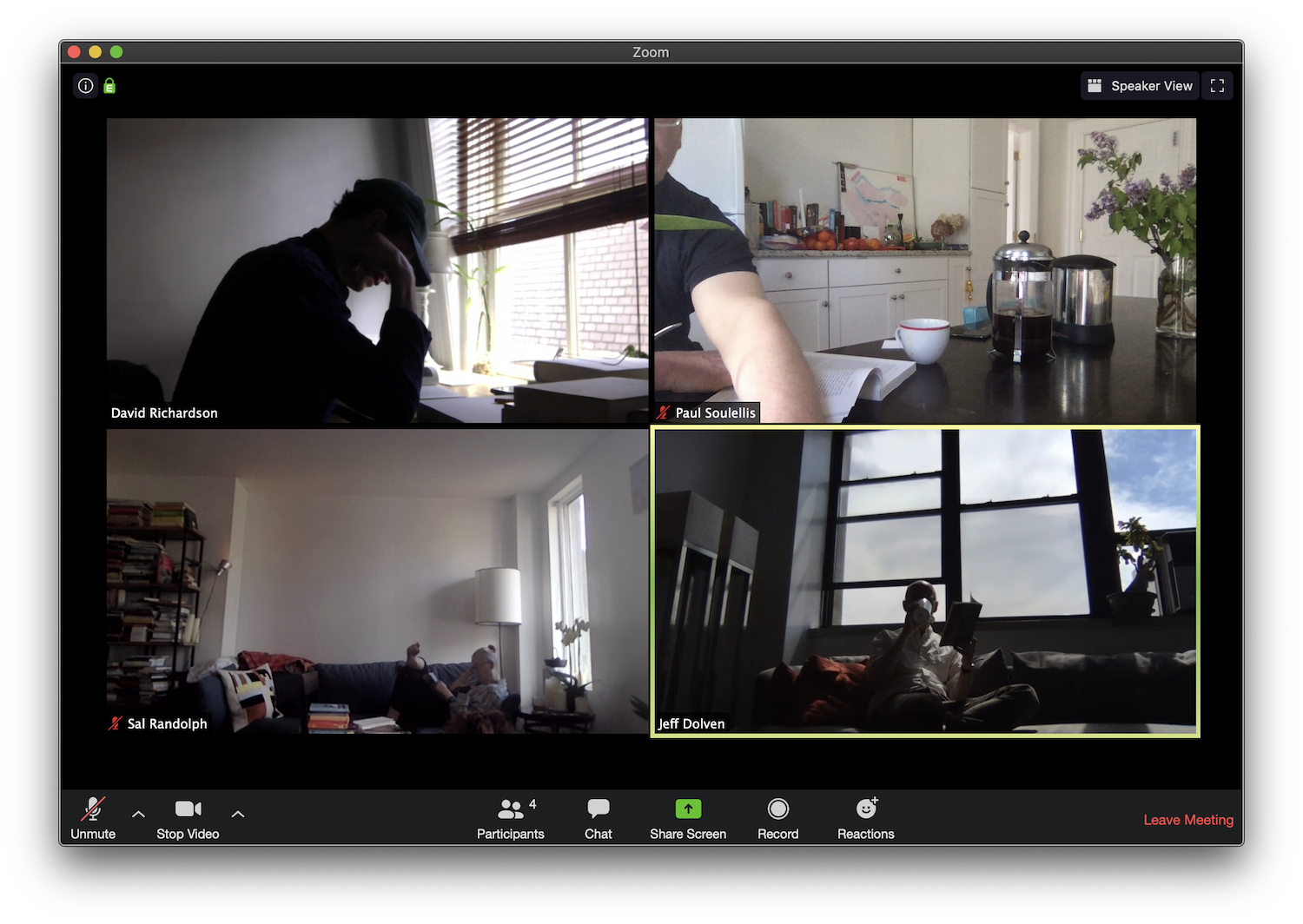
I got to experience a different practice of togetherness recently when Sal Randolph and David Richardson, who run another publishing space called Dispersed Holdings, held a “reading zoom.” It was a generous invitation to simply read together, in silence, in a zoom space they had set up. A few of us came on at first and then gradually others joined. There was something so beautiful about this experience, watching and listening and also, yes, reading, communally. It was luxurious and very much a privilege, to slow down and take the time to do this. There was no denying that we were connected in our silence, but much of it had to do with listening, in an ambient kind of way, but not entirely casual either. Carefully attuned.
So, let’s try this experiment.
Listen (1 minute)
Turn off your camera, and turn on your sound. Everyone unmute. Close your eyes if you like. Let’s just listen, for a minute.
Look (1 minute)
Now, turn your cameras back on, and go to the gallery view. You can keep your sound on. If you can, point your camera at something, anything, or nothing, for us to look at. A book, a pet, an object on a table, the ceiling. Anything except you.
Touch (1 minute)
Come back into the frame. If you’re able to, hold our hands up to the camera, so that our screens are filled with hands. Can you touch the frame? Who’s there above you, below you, to your side?
Deep breath.
There are X number of us here on this zoom. What I’d like to propose is that we make a collective print publication. It’s going to be X number of pages, one page for each of you. Each of you will contribute one page. That page will be whatever you share on your screen for all of us to see, which I will capture as an image on my end. That can either be your entire desktop, or just one particular screen. When you go to screen share, you’ll see that option.
So, what goes on your screen? Scroll all the way to the bottom to see some words that you can use as prompts for the next 20 minutes. They’re all from Urgency Reader 2.
Share anything you want with the group*. Use the prompts to generate images, words, a longer piece of writing, an assemblage that you put together on your desktop. Anything at all. And if those words don’t do it for you, you can go in another direction. Have fun with it, be silly, write, get serious, whatever you want.
Our goal is to share our screens after 20 minutes. We’ll go through them one by one and I’ll screenshot them so that I’ve got them as images. Later, I’ll print them on the risograph, assemble them, and mail the publication to you. It’s just for us. A record of this moment that we were all in together.
*Guidelines for our collective publication: if you’re thinking about showing or expressing something sexually explicit or violent, please carefully consider the context and audience here in this space for appropriateness. Absolutely not allowed: threats of violence or violent language directed against another person or group of people; sexist, racist, homophobic, transphobic, ableist, or otherwise discriminatory jokes and language; personal insults, particularly those related to gender, sexual orientation, race, religion, or disability. If in doubt, please DM me or Paige in the chat.
Please go here to let me know if/how you’d like your name to appear in SCREEN ZINE, if you’d like a printed copy mailed to you, and if so, your mailing address. Your information will only be seen by Paul Soulellis and will not be shared or used for any other purpose.
Thank you!
paul@soulellis.com
speculative surrender resist austerity and do not touch face
gathering makes a grammar all its own fuck
friends . . . . gridded i do not pretend
when you talk her shelves contained the world
you are safe digital dwellers along some division
close impersonal all up in rise still status: not connected
location: automatic the year i stopped making art
the impossibility of looking outside you are the university
how to think about care a thick layer of sanitzer and fear
weeks after the last party all of us baby, all of us
we keep catching our breath in the kitchen rigor
translations of loneliness machine music
my stay at home routine let us affirm our desire to keep swimming
imminent loss, loss of potential I will water you now
where on the tongue does the will live? radical softness
I can’t get the image out of my head
you are the evidence of your ancestors arrival

